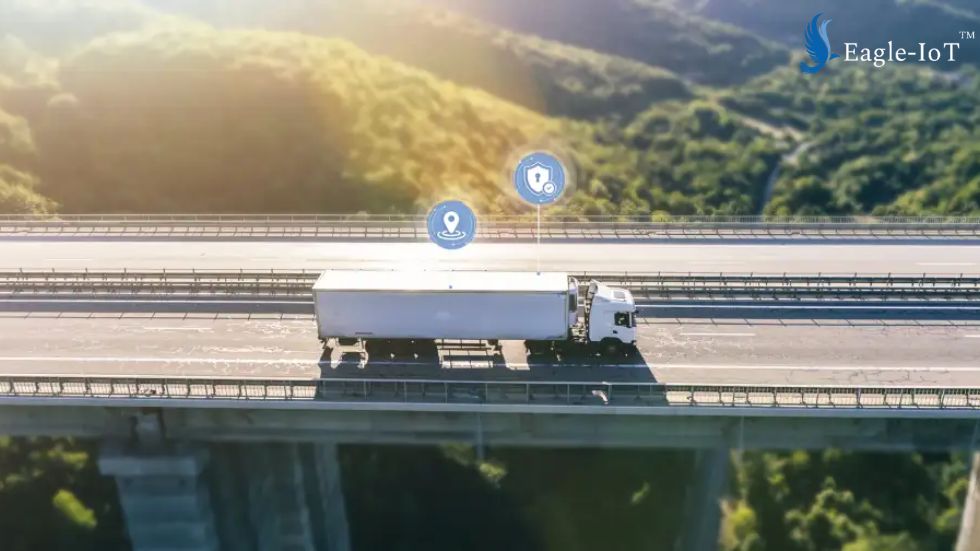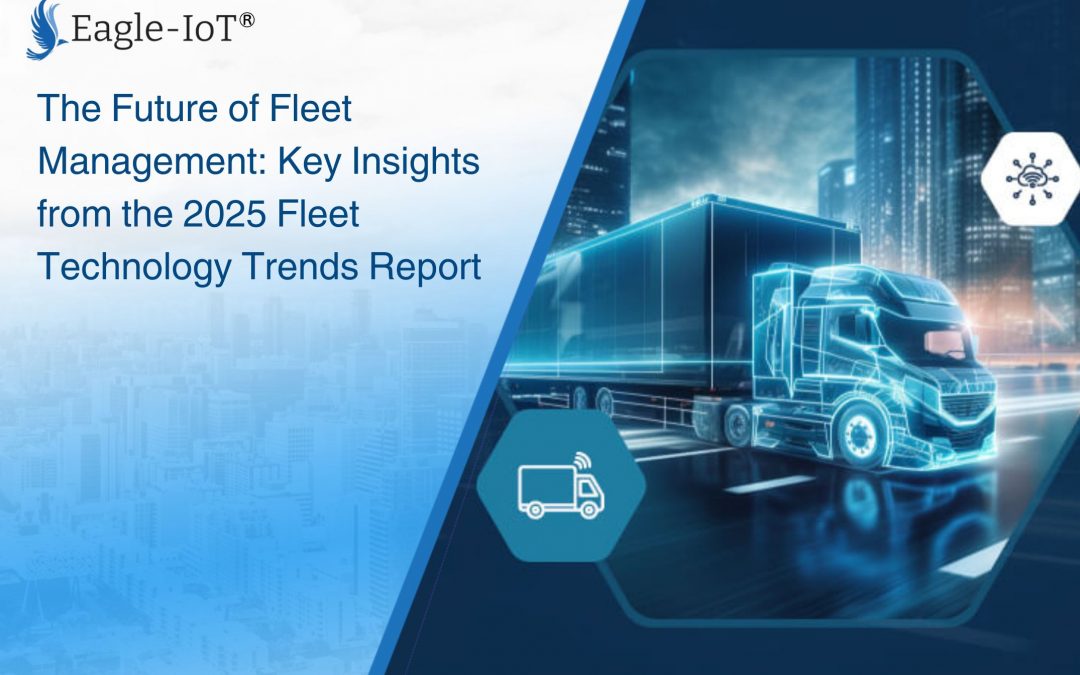The transportation industry is evolving rapidly, with fleet technology playing a crucial role in optimizing operations, enhancing safety, and improving efficiency. The 2025 Fleet Technology Trends Report highlights how data-driven decision-making, artificial intelligence (AI), and predictive analytics are reshaping fleet management. As fleets continue to embrace innovative technologies, they experience significant cost savings, improved sustainability, and enhanced safety measures. This article delves into the key findings of the report and how they are transforming fleet operations.
Harnessing Data for Smarter Decision-Making
Modern fleet management heavily relies on data to drive strategic decisions. Technologies such as GPS fleet tracking, AI-powered video telematics, and predictive analytics enable fleet managers to optimize vehicle performance, streamline operations, and ensure driver safety. With real-time insights, fleet managers can proactively address challenges, minimize downtime, and enhance efficiency across their operations.

AI and Predictive Analytics: Transforming Fleet Operations
The adoption of AI and machine learning in fleet technology has become standard practice. AI-powered video telematics provides personalized driver coaching and promotes safer driving habits, leading to fewer accidents. Predictive analytics allows fleets to anticipate maintenance needs and operational disruptions, reducing downtime and extending vehicle lifespan. These advancements enable fleets to stay ahead of potential issues and maintain operational reliability.
Fleet Technology Adoption Trends
Survey respondents from various industries, including government, transportation, and general freight, indicate a widespread adoption of fleet technology. GPS fleet tracking remains the most widely used tool, followed by in-cab video and field service management solutions. This trend signifies a growing recognition of the value that technology brings in optimizing fleet performance and reducing operational costs.

Addressing Cost Challenges with Fleet Technology
For the fifth consecutive year, rising operational costs remain a primary concern for fleet operators, with 77% of survey respondents citing it as their biggest challenge.
However, fleet technology is proving to be a powerful tool in mitigating these expenses. GPS tracking solutions contribute significantly to reducing fuel consumption, accident costs, and labor expenses, providing fleets with a faster return on investment. Additionally, predictive analytics help fleets optimize asset utilization and minimize unnecessary expenditures.
How Cost Savings Are Reshaping Fleet Strategies
The cost savings reported in the 2025 Fleet Technology Trends Report are influencing fleet operational strategies in several impactful ways:
- Smarter Decision-Making
Fleet managers are making more strategic decisions based on precise data insights from GPS tracking and AI-powered analytics, improving efficiency and safety.
- Budget Optimization
Savings in key areas such as fuel (16%), accident-related expenses (22%), and labor (16%) allow fleets to reinvest funds into technology upgrades, driver training programs, and fleet expansion.
- Sustainability Focus
Reduced fuel consumption and maintenance costs contribute to lower greenhouse gas emissions, aligning with sustainability goals and promoting eco-friendly fleet operations.
- Safety Enhancements
With accident and insurance costs decreasing by 22%, fleets are prioritizing safety initiatives, including advanced driver coaching and risk management strategies.
- Workforce Retention and Recruitment
Cost savings enable fleets to offer competitive wages and benefits, attracting and retaining skilled drivers in an industry facing labor shortages.
- Increased Resilience
By lowering costs and optimizing operations, fleets become more resilient against rising expenses and regulatory challenges, ensuring long-term stability.
AI-Driven Maintenance Strategies
AI and predictive analytics are revolutionizing maintenance management by enabling fleets to anticipate servicing needs accurately. Instead of relying on fixed maintenance schedules, AI-driven insights help determine precise maintenance intervals, preventing unexpected breakdowns and extending vehicle life. Additionally, for fleets transitioning to electric vehicles (EVs), predictive maintenance plays a crucial role in ensuring operational efficiency and sustainability.


Maximizing the Benefits of GPS Fleet Tracking
GPS fleet tracking remains the most widely adopted technology due to its comprehensive capabilities. Fleet managers use GPS data to enhance vehicle performance, reduce fuel consumption, and minimize downtime. For drivers, GPS tracking improves route efficiency, leading to increased productivity and job satisfaction. The integration of GPS technology with AI analytics allows fleets to continuously refine their operations and achieve greater efficiency.
-
Emerging Technologies: Dashcams, Asset Tracking, and Field Service Management
While GPS tracking leads in adoption, other technologies such as in-cab dashcams, asset tracking, and field service management solutions are gaining momentum:
- Dashcams: 68% of in-cab dashcam users find them highly beneficial, with nearly half reporting a positive return on investment within a year due to reduced accident and insurance costs.
- Asset Tracking: Predictive analytics in asset tracking enhance fleet efficiency by improving asset utilization and security.
- Field Service Management: Over half of fleet operators using field service management solutions report increased scheduling efficiency and operational optimization, particularly in industries like transportation, construction, and distribution.
Conclusion
The findings of the 2025 Fleet Technology Trends Report highlight a transformative shift in the fleet management landscape. With the integration of AI, predictive analytics, and data-driven technologies, fleets are achieving unprecedented cost savings, operational efficiency, and safety improvements. These advancements not only enhance fleet performance but also position businesses for long-term success in an increasingly competitive industry.
By leveraging these insights, fleet operators can make informed decisions, optimize their budgets, and stay ahead of industry challenges. As technology continues to evolve, embracing these innovations will be key to maintaining a competitive edge in the fleet management sector.


